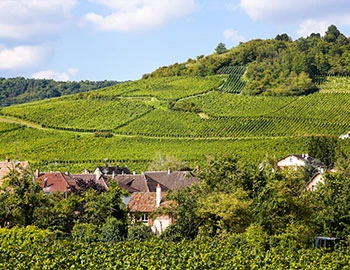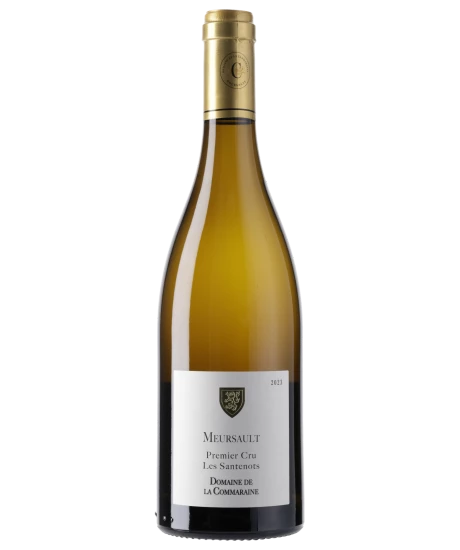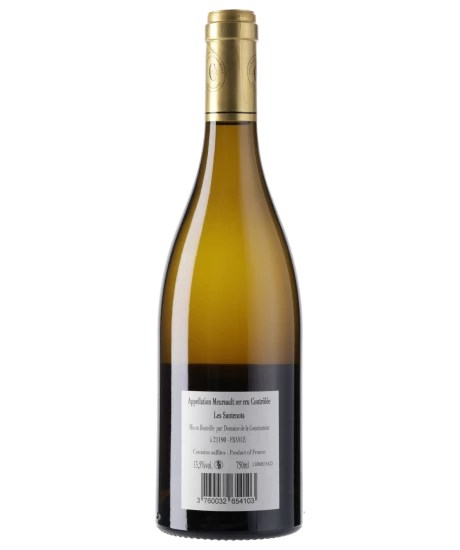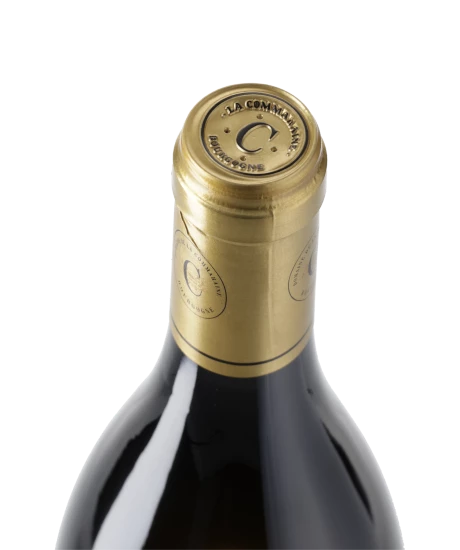Meursault, 1er Cru Les Santenots 2023
Meursault, 1er Cru Les Santenots 2023
AC, Domaine de la Commaraine, 750 ml

Burgundy white at its finest
- A textbook Meursault – elegant, mineral and deeply rooted in its origin.
- Delicate floral aromas on the nose, accompanied by fresh fruit and a silky, mineral palate with a long finish.
- Ideal with delicate fish, creamy poultry dishes, or creative vegetable sides – a highlight for memorable moments.
Description
The name «Santenots» derives from the Gallic word Sentu, which means path. This name is reminiscent of the paths that wind their way between the mineral-rich hills and old quarries to Auxey-Duresses – a reflection of the characterful terroir of this location. The bouquet reveals an intense yet subtle aroma, characterised by elegant white flowers and a delicate freshness. On the palate, the Meursault is mineral and silky, with clear aromas of fresh fruit and subtle spice notes. The finish is complex, elegant and long-lasting. Ideal with poached fish with beurre blanc, delicate poultry in cream sauce or creative vegetable dishes.
Attributes
| Grape variety: | Chardonnay |
| Producer: | Domaine de la Commaraine |
| Origin: | France / Bourgogne / Côte de Beaune |
| Ripening potential: | 3 to 12 years |
| Drinking temperature: | 10 to 12 °C |
| Food Pairing: | Mushroom ragout, Fresh water fish with cream sauce, Coquilles Saint Jacques on lentils, Succulent chicken breast with cream sauc |
| Maturation: | in large wooden barrel/foudre |
| Maturation duration: | 12 months |
| Volume: | 13.5 % |
| Note: | Contains sulphites |
Domaine de la Commaraine
The beauty behind the walls of Château Commaraine
The Burgundian municipality of Pommard has a classic, historic ambience with most of the buildings and walled vineyards (clos) intact, exuding a peaceful and tranquil atmosphere. The small, romantic village square conveys a slightly exotic feeling to its visitors – an unusual sensation in rural Burgundy indeed!
Clos de la Commaraine, a Monopole Premier Cru just outside the village centre of Pommard is an incredible vineyard waiting to be rediscovered. It is an outstanding estate in every respect, with a beautiful château in the southern part of the vineyard, on the outskirts of the village. The vineyard is owned by Harvard professor Denise Dupré and Mark Nunnelly, a former managing director at the Boston-based investment fund Bain Capital. Also on board is Jean-Luc Vitoux – a French investor and current director of La Commaraine. Now, under the passionate care of the new owners and a brilliant team, it is also well on its way to setting a new benchmark in Pommard. No expense is being spared to tease out the best wine from the terroir of the clos, from the cultivation of the vines to the selection and vinification.
The debut wine 2018 Clos de la Commaraine Monopole from Domaine de la Commaraine is simply stunning. Luxurious, detailed and refined, this is undoubtedly a very special wine. The 2018 harvest marked the next chapter in the life of Burgundy’s landmark Clos de la Commaraine. Situated in the highly regarded Côte-d’Or, the estate comprises 3.75 hectares of Pommard 1er Cru vines grown in a monopole and now cultivated for the production of biodynamic wines. The last wine produced under the label of the single vineyard Commaraine dates back to 2002 – since then the grapes have been sold to Maison Louis Jadot and produced under the Jadot label.
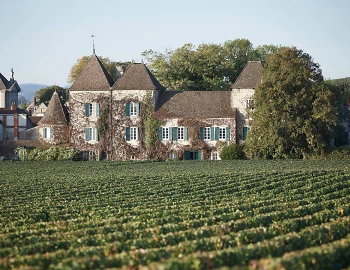
Chardonnay
King or beggar?
Hardly any variety of vine shows such a broad spectrum of quality as the Chardonnay. Its wines range from faceless neutrality to breath-taking class. It is an extremely low-maintenance vine, which explains why it is grown around the world – even in places where it probably should not be. The aromas of the Chardonnay variety are not very pronounced: a bit of green apple, a little hazelnut; in warmer latitudes, also melon and exotic fruits. The wines are often defined by maturing in casks. They develop more or less subtle notes of butter, toasted bread and vanilla. The grapes achieve their highest expression in their region of origin, Burgundy. Its heart beats in the Côte de Beaune: one might think of the plant growth of Meursault or Puligny-Montrachet. With their finesse and complexity, they can survive for decades. Chardonnay also achieves first class in some Blanc-de-Blancs champagnes. It additionally yields great wines in the Burgundian Chablis, and increasingly in Australia and Chile. A simple rule of thumb for pairing with food: When butter and cream are involved, you cannot go wrong with Chardonnay.
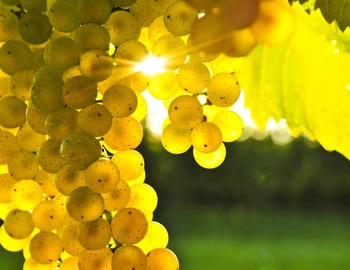
Côte de Beaune
Côte de Beaune: guarantor of elegance
The city of Beaune is the cultural and economic centre of Burgundy. The prestigious vineyard sites, stretching in a band from Santenay (located about 20 kilometres south of Beaune) to the village of Aloxe-Corton (five kilometres north of Beaune), form the Côte de Beaune. Legendary, uniquely expressive crus originate here. In fact, the most prestigious Chardonnay growths in the world are produced around Chassagne-Montrachet, Puligny-Montrachet and Meursault.
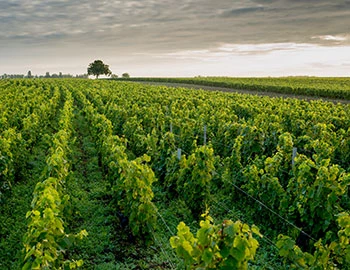
Bourgogne
Burgundy: home of the crus
Burgundy and Bordeaux are France’s most prestigious wine regions. Nonetheless, they are completely distinct in character: while Bordeaux, as the land of the chateaux, enjoys an aristocratic image, Burgundy has retained its rustic agrarian structure. Burgundy stretches for over 200 kilometres, from Dijon in the north to Lyon in the south. In a highly complex jigsaw of the most diverse of terroirs, Chardonnay and Pinot Noir demonstrate the subtle ways in which they embody their sources.
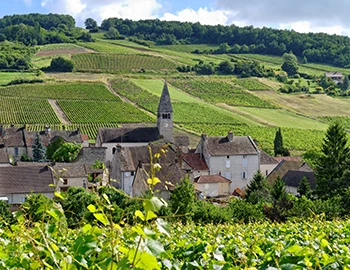
France
France – Philosophy in a bottle
According to French philosophy, wine should be an expression of the soil and climate. They use the word “terroir” to describe this. Terroir makes every wine different, and many especially good. French wine is regarded worldwide as an expression of cultural perfection. The French believe that humans are responsible for the quality of the berries, the vine variety for their character, and nature for the quantity. This philosophy can be expressed succinctly as: “the truth is the vineyard, not the man.”
